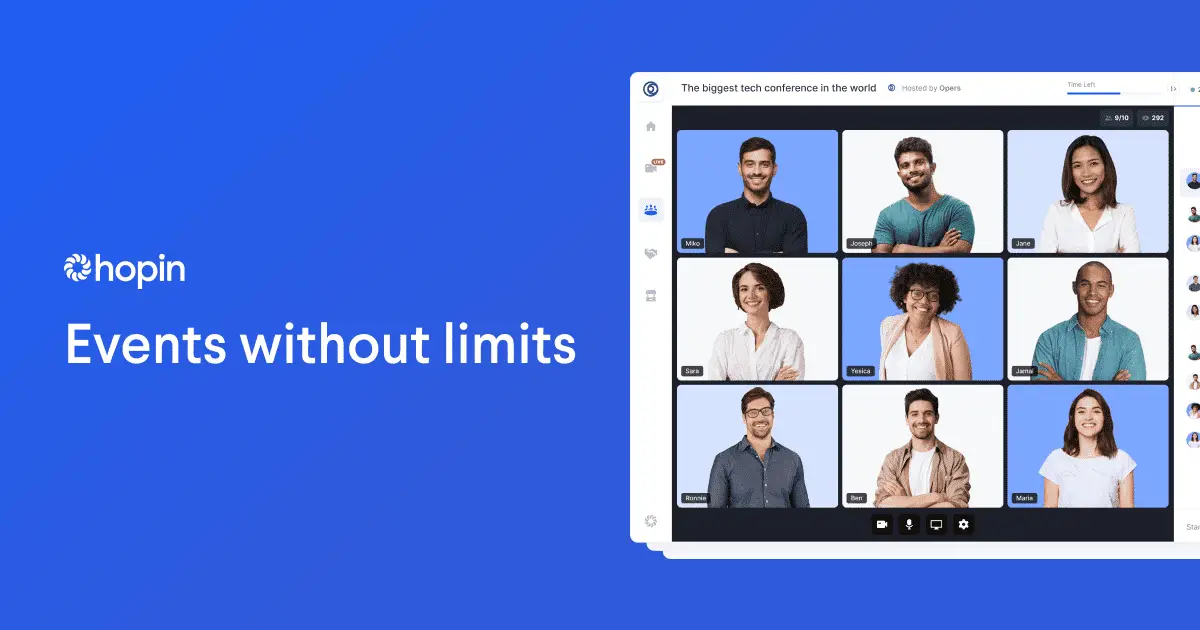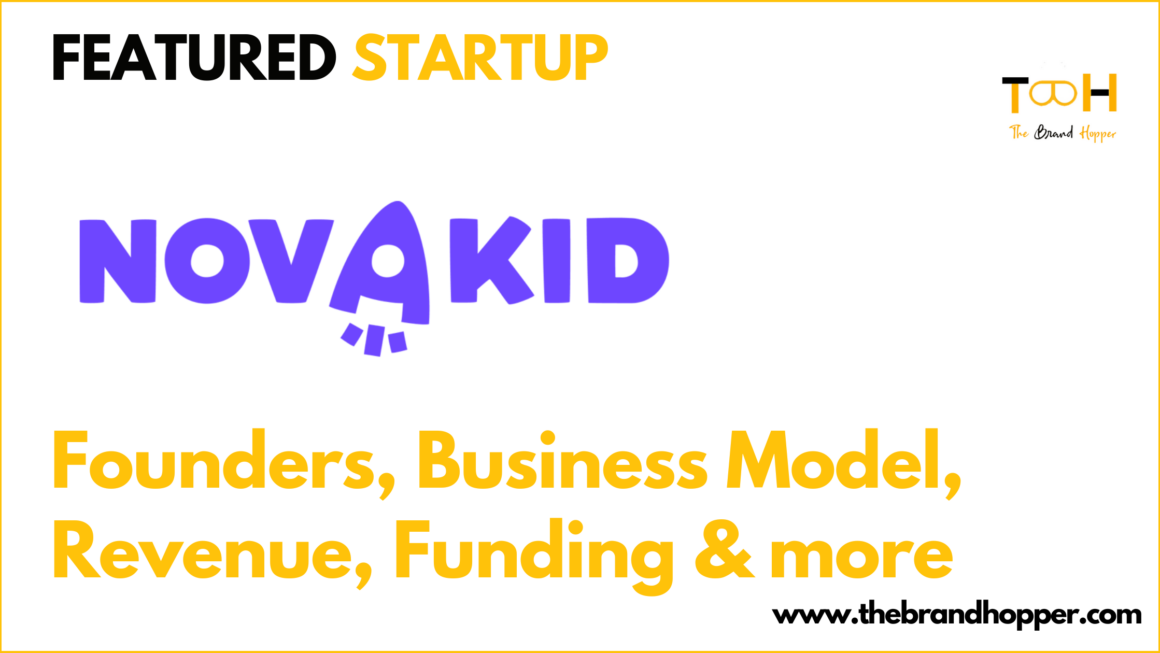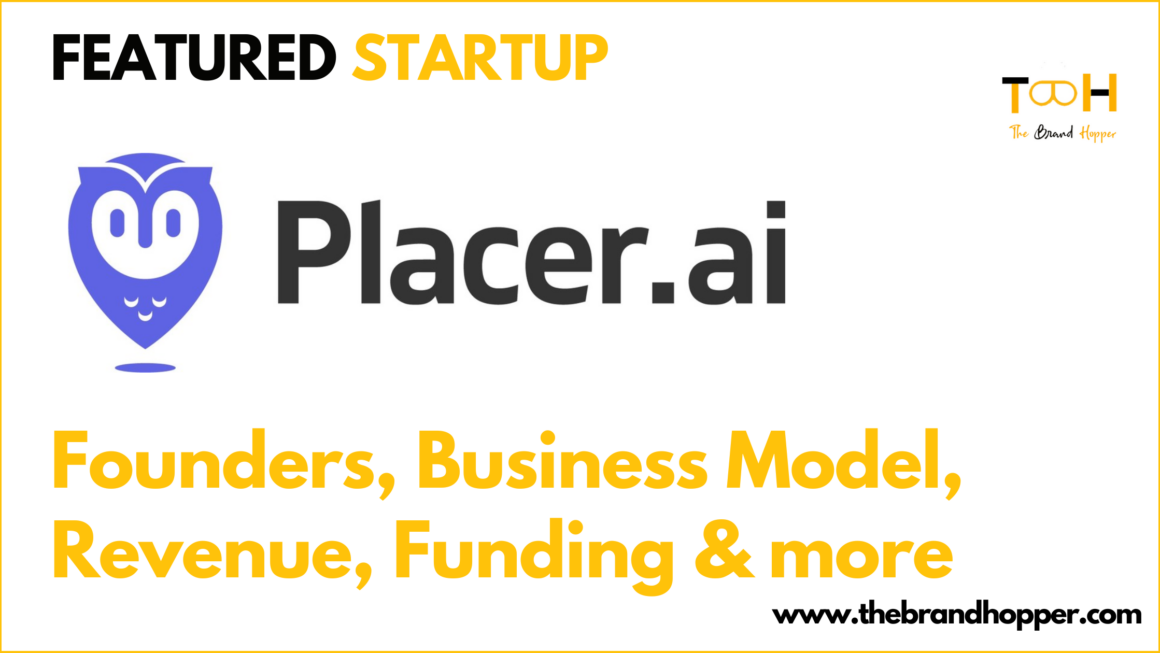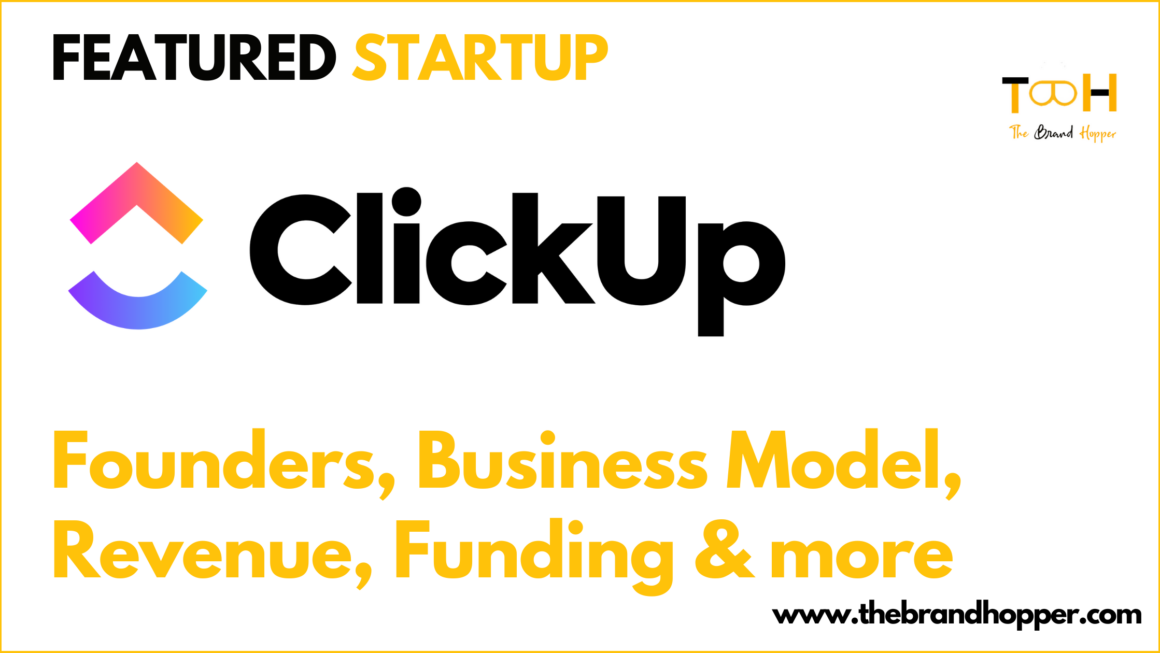In a rapidly evolving world where digital connections have become paramount, Hopin has emerged as a game-changing startup, revolutionizing the way we experience virtual events and conferences. With its visionary approach and cutting-edge technology, Hopin has quickly become a driving force in reshaping the landscape of online gatherings and fostering meaningful connections across the globe.
Hopin was founded in 2019 by Johnny Boufarhat, a forward-thinking entrepreneur seeking to bridge the gap between physical and virtual events. Recognizing the limitations of traditional in-person gatherings and the growing need for remote collaboration, Boufarhat set out to create a platform that would seamlessly replicate the immersive and interactive aspects of physical events in a virtual environment.
At its core, Hopin is an all-in-one virtual events platform that enables organizations and individuals to host, engage, and connect with audiences worldwide. The platform combines a range of powerful features, including live streaming, video conferencing, networking capabilities, and interactive event experiences, to provide a comprehensive virtual event solution.
With Hopin, event organizers can create dynamic and engaging experiences, incorporating live presentations, panel discussions, breakout sessions, virtual exhibitor booths, and networking opportunities. Attendees can participate in these events from the comfort of their homes or offices, connecting with speakers, exhibitors, and fellow participants in real-time.
One of the key factors that sets Hopin apart is its user-centric approach and emphasis on interactivity. The platform offers engaging features like chat rooms, polls, Q&A sessions, and interactive gamification elements that enhance audience engagement and create a sense of community. Attendees can network with each other, exchange ideas, and forge new connections, mirroring the serendipitous encounters often found in physical events.
Hopin gained significant traction in 2020 as the world grappled with the COVID-19 pandemic, which forced a shift towards remote work and virtual experiences. The platform quickly became a go-to solution for a wide range of events, including conferences, trade shows, webinars, virtual career fairs, and even weddings.
Beyond its robust technology, Hopin has fostered a vibrant global community. The startup has attracted notable investors, including Andreessen Horowitz and IVP, and has experienced exponential growth, scaling to serve millions of users and hosting thousands of events in a short span of time.
Founding History of Hopin
Hopin has captured attention with its innovative platform that transforms the way we connect and engage in online gatherings. Founded in 2019 by Johnny Boufarhat, Hopin was born out of a vision to create immersive and interactive virtual event experiences that bridge the gap between physical and digital interactions.

Johnny Boufarhat, an entrepreneur with a passion for community building and event organization, recognized the limitations of traditional in-person events, such as geographical constraints, cost barriers, and logistical challenges. With a desire to reimagine event experiences in a digital format, Boufarhat set out to develop a platform that would recreate the essence of physical events while leveraging the advantages of virtual connectivity.
The initial idea for Hopin came to Boufarhat in 2019 when he attended a tech conference in the United States while based in Europe. The experience of being physically separated from the event inspired him to explore the possibilities of creating an immersive virtual event platform that would break down geographical barriers and bring people together from around the world.
Boufarhat assembled a talented team of developers, designers, and event professionals who shared his vision. Together, they set out to create a platform that would empower event organizers to host virtual events that deliver exceptional experiences and foster meaningful connections.
In February 2020, Hopin officially launched its platform, introducing a new era of virtual events. The timing proved pivotal as the COVID-19 pandemic accelerated the adoption of remote work and remote collaboration, creating an urgent need for reliable and engaging virtual event solutions.
Hopin quickly gained traction and attracted significant attention from event organizers, businesses, and individuals seeking innovative ways to connect virtually. The platform’s user-friendly interface, comprehensive features, and focus on interactivity positioned Hopin as a frontrunner in the virtual events market.
Through its robust technology, Hopin offers a range of powerful features that enable event organizers to host highly interactive and engaging virtual experiences. These features include live streaming capabilities, interactive chat rooms, Q&A sessions, networking functionalities, virtual exhibitor booths, and the ability to create personalized agendas. Hopin’s platform was designed to seamlessly replicate the vibrant and collaborative aspects of physical events, encouraging networking and fostering connections among participants.
Hopin’s early success and growing popularity attracted significant investment from renowned venture capital firms. The startup raised substantial funding, including a Series A round led by Accel and a subsequent Series B round led by IVP. These investments not only provided the necessary resources for Hopin’s rapid expansion but also served as a testament to the company’s potential and the industry’s recognition of its value proposition.
Since its inception, Hopin has continued to innovate and refine its platform based on user feedback and evolving market needs. The company has expanded its capabilities, integrating additional features and enhancements to deliver an unparalleled virtual event experience.
Features of Hopin
Hopin offers a range of products and features that empower event organizers to host immersive and interactive virtual events. These products are designed to replicate the experience of physical events while leveraging the advantages of digital connectivity. Here are the key products and features offered by Hopin:

Event Hosting Platform: At the core of Hopin’s offerings is its comprehensive event hosting platform. The platform provides event organizers with the tools and functionalities to create, manage, and host virtual events of various sizes and formats. The platform is user-friendly and customizable, allowing organizers to tailor the event experience to their specific needs.
Event Stages and Sessions: Hopin enables event organizers to set up multiple stages and sessions within their virtual events. Stages are designed for hosting main presentations, keynote speeches, or panel discussions, while sessions allow for smaller group discussions, workshops, or breakout sessions. Organizers have full control over the scheduling, content, and participants for each stage or session, creating a dynamic and engaging event agenda.
Live Streaming and Video Conferencing: Hopin’s platform includes integrated live streaming and video conferencing capabilities. Event organizers can broadcast their presentations, keynotes, or panel discussions to attendees in real-time. The video conferencing feature facilitates interactive sessions, allowing participants to join the conversation, ask questions, and engage with speakers or panelists. This creates an immersive and collaborative environment for virtual events.
Networking and Engagement Tools: Hopin recognizes the importance of networking and fostering connections at events. The platform offers interactive features such as chat rooms, private messaging, virtual networking lounges, and one-on-one video meetings. These tools enable attendees to network, exchange ideas, and build meaningful connections with other participants, mirroring the social aspect of physical events.
Virtual Exhibitor Booths: Hopin allows event organizers to create virtual exhibitor booths within their virtual events. Exhibitors can showcase their products, services, or brand information through customizable booths. Attendees can explore these booths, interact with exhibitors through live chats or video calls, and access downloadable resources or promotional materials. Virtual exhibitor booths provide valuable opportunities for exhibitors to engage with a targeted audience and generate leads.
Interactive Features and Gamification: Hopin offers interactive features and gamification elements to enhance attendee engagement and create a dynamic event experience. These features may include live polls, Q&A sessions, audience reactions, virtual giveaways, and live quizzes. By integrating gamification elements, Hopin encourages active participation, rewards engagement, and adds an element of fun to virtual events.
Analytics and Reporting: Hopin provides event organizers with detailed analytics and reporting capabilities. Organizers can access insights and metrics related to attendee engagement, session popularity, chat interactions, and other key event performance indicators. These analytics help organizers understand attendee behavior, measure event success, and make data-driven decisions for future events.
Through its diverse product offerings, Hopin aims to provide a comprehensive and immersive virtual event experience. By leveraging live streaming, video conferencing, networking tools, virtual exhibitor booths, interactive features, and analytics, Hopin empowers event organizers to create engaging, interactive, and memorable virtual events that rival the experiences of physical gatherings.
Business Model of Hopin
Hopin has developed a comprehensive business model that encompasses various revenue streams and strategies. The company’s business model revolves around providing a robust platform for hosting virtual events while offering additional services and features. Here is a detailed explanation of Hopin’s business model:
Event Hosting Platform: The primary revenue stream for Hopin is its event hosting platform. Hopin offers event organizers a comprehensive suite of tools and features to create and host virtual events of various sizes and formats. Organizers pay a fee to utilize the platform, which grants them access to features such as live streaming capabilities, interactive chat rooms, networking functionalities, virtual exhibitor booths, and more. The fee structure may be based on factors such as the duration of the event, the number of attendees, and additional add-ons or premium features.
Ticket Sales and Registration: Hopin enables event organizers to sell tickets or offer registrations for their virtual events directly through the platform. This allows organizers to monetize their events and generate revenue through ticket sales or registration fees. Hopin may charge a processing or transaction fee for facilitating the ticketing and registration process, or they may enter into revenue-sharing agreements with organizers, earning a percentage of the ticket sales or registration fees.
Premium Features and Add-ons: In addition to the core platform, Hopin offers premium features and add-ons that event organizers can opt to include in their virtual events. These features may include enhanced branding options, advanced analytics and reporting, integrations with third-party tools, and dedicated customer support. By providing these value-added services, Hopin can generate additional revenue from organizers who are looking for more advanced functionalities and customization options.
Sponsorships and Partnerships: Hopin collaborates with brands, sponsors, and event partners to offer sponsorship opportunities within virtual events. Sponsors can showcase their products or services through virtual exhibitor booths, branded sessions, or sponsored interactive activities. Hopin may generate revenue through sponsorship agreements and partnerships, where sponsors pay a fee or enter into revenue-sharing arrangements to gain exposure and engage with event attendees.
Marketplace and Service Providers: Hopin maintains a marketplace where event organizers can access a wide range of service providers, such as event production teams, virtual event consultants, marketing agencies, and technical support providers. Hopin may facilitate connections between organizers and service providers and earn revenue through commissions or referral fees from these partnerships.
Data Insights and Analytics: Hopin collects valuable data and insights from virtual events hosted on its platform. The company can provide event organizers with detailed analytics and reports, including attendee engagement, session popularity, and demographic information. Hopin may offer data analytics services as an additional revenue stream, providing event organizers with actionable insights to improve their future events or for market research purposes.
Continuous Platform Development: Hopin invests in the continuous development and improvement of its platform. This includes expanding and enhancing existing features, introducing new functionalities, and addressing user feedback and industry trends. By continually enhancing its platform, Hopin aims to retain existing customers, attract new ones, and generate revenue through subscriptions or platform usage fees.
Hopin’s business model combines revenue streams from event hosting, ticket sales, premium features, sponsorships, partnerships, marketplace services, data analytics, and continuous platform development. By providing a comprehensive and user-friendly virtual event platform, Hopin has positioned itself as a leader in the industry, empowering event organizers to create immersive and engaging virtual experiences while generating revenue for the company.
Investors, Funding and Competitors of Hopin
Hopin is a virtual events platform that was founded in 2019 by Johnny Boufarhat and Tom Chapman. The company has raised a total of $1 billion in funding over 8 rounds. Its latest funding was raised on September 21, 2021 from a Non-equity Assistance round. Hopin is funded by 35 investors, including:
- Andreessen Horowitz
- DFJ Growth
- General Catalyst
- GIC
- IVP
- Northzone
- Salesforce Ventures
- Slack Fund
- Temasek
- Tiger Global
- Arena Holdings
- Altimeter Capital
- Adam Street Partners
- Untitled Investments
- XN
Hopin has also acquired 6 companies, including:
- Attendify (acquired on July 7, 2021)
- Streamable (acquired on March 8, 2021)
- Jamm (acquired on March 8, 2021)
- Topi (acquired on December 14, 2020)
- Boomset (acquired on June 1, 2021)
- StreamYard (acquired on January 20, 2021)
Hopin’s valuation has increased significantly in recent years, from $2 billion in November 2020 to $7.75 billion in August 2021. This growth is due in part to the COVID-19 pandemic, which has forced many events to move online. Hopin’s platform has been used to host a wide variety of virtual events, including conferences, trade shows, and corporate meetings.
Hopin plans to use its latest funding to accelerate expansion of its platform, invest in the development of new products, and acquire additional companies. The company also intends to continue its international expansion, with plans to open offices in new markets in the coming years.
Here are some of the key metrics for Hopin:
- Total funding raised: $1 billion
- Number of investors: 35
- Latest funding round: Non-equity Assistance (September 21, 2021)
- Valuation: $7.75 billion
- Acquisitions: 6
- Key products: Virtual events platform
- Target markets: Enterprise, corporate, and education
- Key competitors: DICE, Bevy, and Zuddl
Also Read: Rapyd – History, Founders, Business Model, Investors & Growth
To read more content like this, subscribe to our newsletter




